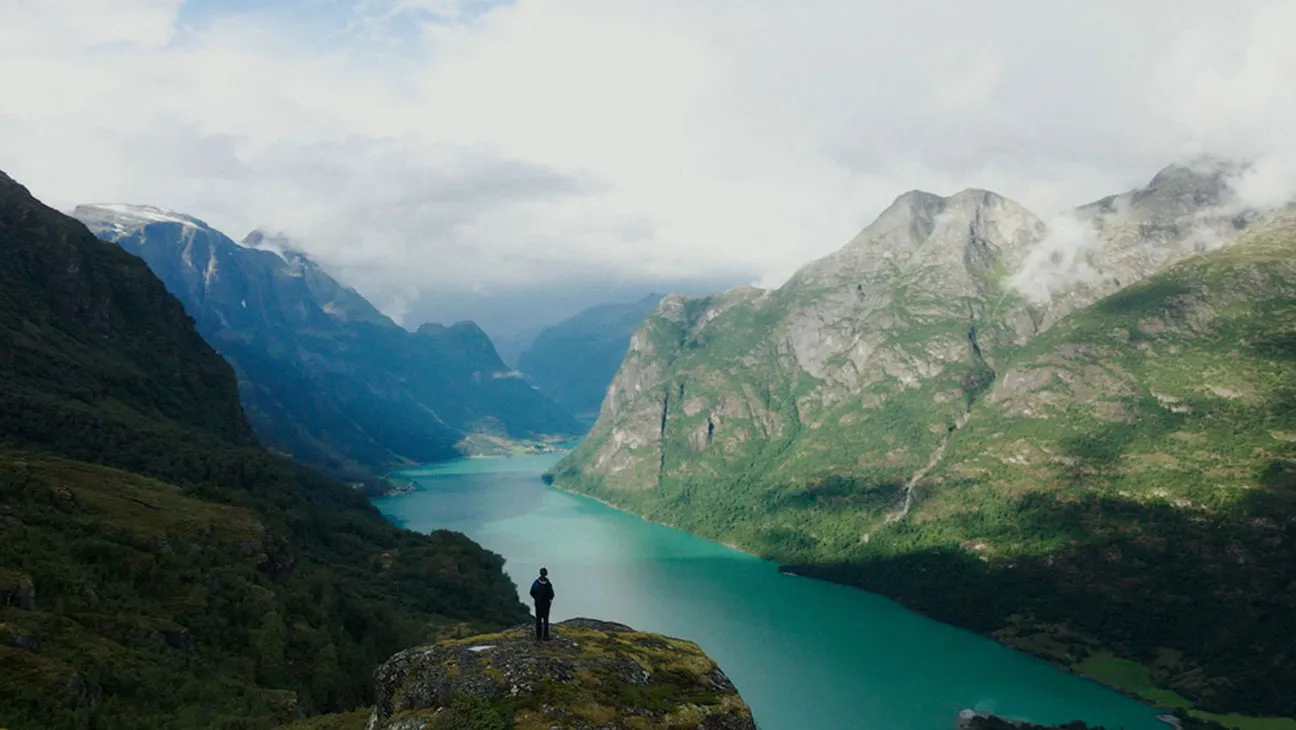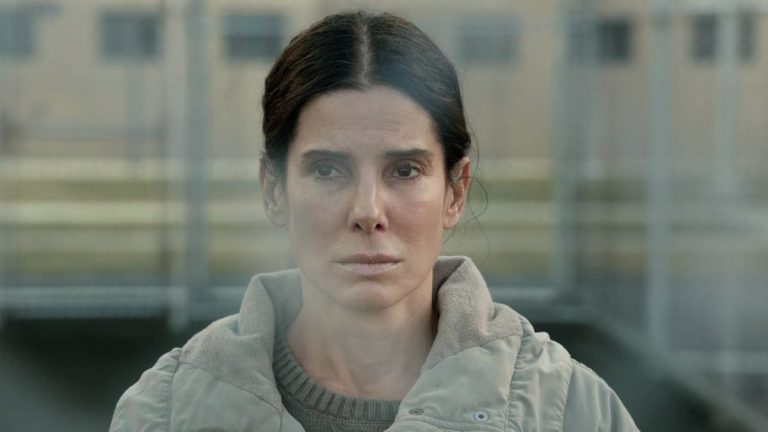There is a certain crop of films that are aware of their experiential richness. They demand an immersive engagement if you care to slow down and are comfortable tempering your wavelength to match its specific rhythm. Margreth Olin’s documentary, Songs of Earth, which Norway chose as their official entry to the Oscars and has among its executive producers Liv Ullman and Wim Wenders, calls for absolute submission. It is poised and confident in its sublime, spectacular quiet and wonder; it achieves an entrancing effect that also strikes warning bells about the sheer ephemerality of everything that envelops us.
Olin is an uncompromising filmmaker. She likes to linger in the swell of the images that have been sculpted to astonishing exquisiteness by cinematographer Lars Erlend Tubaas Oymo. This is a blindingly beautiful film that relies on a particular sense of an imposing starkness to fuel its meandering reflections on mortality that encompasses both the natural world and the human. Olin quietly accomplishes a stirring kinship between the two, one that is exceptionally assured of mutual intimacy but also well-attuned to precarity intrinsically embedded in everything. Nothing is constant and stable; everything’s in flux, and the inevitability of change poses several mournful fears and anxieties to Olin’s parents, Jorgen and Magnhild, who are at the center of her film.
Olin has traveled to her parent’s home in the remote valley of Western Norway’s Oldedalen. They lead a secluded existence without a speck of other habitation in the vicinity. But both are grateful and in bliss, their love for each other instantly shining through. Jorgen is almost a decade older than Magnhild. Fear of losing the other vividly registers in several of their conversations. He says he has to ensure he goes for a walk every day just to keep up with her pace when both go out together. Small, telling details like these, snatches of recollection about their families, are gently placed in the film’s fabric and never burden it with the shticks of a memory piece.

Olin has a clear vision, utterly committed to telling a story whose human elements are humbled by the all-encompassing natural splendor, which can often take terrifying shape and wipe out entire families. As much as Olin’s parents are content in their habitat, neither of them is indifferent or oblivious to the constancy and randomness of destruction. They acknowledge the monumental losses in their lives: landslides that have taken with them whole families and left behind not a trace of existence, as well as vividly perceived transformations in life-long-familiar sceneries. Perilousness exacted by nature is given a sharp focus along with the breathtaking serenity it offers. Peace and beauty can be an illusion for the dangers coiled in its underbelly if one doesn’t afford due care.
A definitive glacier calving or receding registers equally strongly to Jorgen as well as the distressing abnormality of an excessive water volume cascading off the glacier. These are two people who are profoundly connected to their environs, caring for it and giving it as much reverence as they would for other humans. But none of this is played in the tone of painting the couple as odd in their openness and perceptiveness of the surroundings. They are just doing the most natural thing, being as generously conducive to the awe that all the desolate vastness bequeaths on them.
The gorgeousness of the vistas beggars belief and will provoke in anyone immediate wanderlust. Pristineness and a certain untouched, virginal quality cut through every natural aspect Olin evokes, ranging from the glaciers and fjords to even bees and owls. This is a stunningly inclusive film that allows in itself a permeability. This is as crucial as the transience, interposing tales of childhoods skipped to brace for preponed responsibility. Generations pass, but the spruce tree planted by Jorgen’s grandfather stands witness to it all.
Olin’s editing is languorous and intense. While the intentions are sincere, some stretches hover to tedium, coming close to being a series of extraordinary visuals stitched together. Yet, Olin finds a real beating heart that manages to pulse through, brimming with tenderness, poignance, and a wealth of genuine emotion. There’s a rootedness the film is able to summon, rendering it a modest but moving portrait. In a scene when he is hiking, Jorgen talks about a special tint a flower has that grows against odds within a rock atop a mountain. Passing, seemingly minuscule remarks like these are but stolid cues of a film that knows the texture of its inhabited world.
Songs of Earth screened at the DocPoint Helsinki Documentary Film Festival 2024.
Songs of Earth (2024) Documentary Links: IMDb, Rotten Tomatoes







![In Front Of Your Face [2021]: ‘Cannes’ Review – Hong’s latest is Slight in spirit but Deeply Intimate in Form](https://79468c92.delivery.rocketcdn.me/wp-content/uploads/2021/08/In-Front-of-Your-Face-2-768x405.jpg)